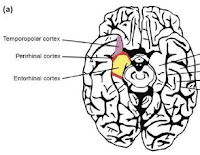3rd Period Health Project
All About Narcotics
Deja Vu
I have always wondered about deja vu. I wondered about where it came from, how does it happen, why does it happen, and what it is. French scientist Emile Boirac, one of the first to study this strange phenomenon, gave the subject its name in 1876, Psychologist Edward B. Titchener stated that deja vu is the phenomenon of having the strong sensation that an event or experience currently being has been experienced in the past, whether it has actually happened or not. Deja Vu is French and means “already seen” and has several variations, including déjà vécu, already experienced; déjà senti, already thought; and déjà visité, already visited. There are many explanations to what it is and why it happens, but this explanation appears to be the one that everyone has decided upon using; déjà vu is not that it is an act of “precognition” or “prophecy”, but rather that it is an anomaly of memory, giving the false impression that an experience is “being recalled”. This explanation is supported by the fact that the sense of “recollection” at the time is strong in most cases, but that the circumstances of the “previous” experience (when, where, and how the earlier experience occurred) are uncertain or believed to be impossible. As well, as time passes, subjects may exhibit a strong recollection of having the “unsettling” experience of déjà vu itself, but little or no recollection of the specifics of the event(s) or circumstance(s) which were the subject of the déjà vu experience itself (the events that were being “remembered”). This may result from an “overlap” between the neurological systems responsible for short-term memory and those responsible for long-term memory, resulting in (memories of) recent events erroneously being perceived as being in the more distant past. Early researchers tried to establish a link between déjà vu and serious mental disorders such as schizophrenia, anxiety, and dissociative identity disorder, but failed to find the experience of some diagnostic value. There does not seem to be a special association between déjà vu and schizophrenia or other psychiatric conditions. The strongest pathological association of déjà vu is with temporal lobe epilepsy. This correlation has led some researchers to speculate that the experience of déjà vu is possibly a neurological anomaly related to improper electrical discharge in the brain. As most people suffer a mild (i.e. non-pathological) epileptic episode regularly (e.g. a hypnagogic jerk, the sudden “jolt” that frequently, but not always, occurs just prior to falling asleep), it is conjectured that a similar (mild) neurological aberration occurs in the experience of déjà vu, resulting in an erroneous sensation of memory. Scientists have even looked into genetics when considering déjà vu. Although there is not currently a gene associated with déjà vu, the LGII gene on chromosome 10 is being studied for a possible link. Certain forms of the gene are associated with a mild form of epilepsy and, though by no means a certainty, déjà vu occurs often enough during seizures that researchers have reason to suspect a link. Certain medicines increase the chances of déjà vu occurring in the user. Psychologists have discovered different types of deja vu, such as associative déjà vu, which is the most common type of déjà vu experienced by normal, healthy people is associative in nature. You see, hear, smell or otherwise experience something that stirs a feeling that you associate with something you’ve seen, heard, smelled or experienced before. Many researchers think that this type of déjà vu is a memory-based experience and assume that the memory centers of the brain are responsible for it, and then there is biological déjà vu there are also high occurrences of déjà vu among people with temporal lobe epilepsy. Just before having a seizure they often experience a strong feeling of déjà vu. This has given researchers a slightly more reliable way of studying déjà vu, and they’ve been able to identify the areas of the brain where these types of déjà vu signals originate. However, some researchers say that this type of déjà vu is distinctly different from typical déjà vu. The person experiencing it may truly believe they’ve been through the exact situation before, rather than getting a feeling that quickly passes. Déjà vu also occurs with some predictability in major psychiatric disorders, including anxiety, depression, dissociative disorders and schizophrenia. Lee Ann Obringer wrote an article stating why we experience deja vu and who experiences it. She says, “While about 60 percent of people say they have experienced déjà vu, the rates are highest among people between the ages of 15 and 25. The upper age varies among researchers, but most agree that déjà vu experiences decrease with age. There have also been higher reported occurrences among those with higher incomes, those who tend to travel more and those with higher education levels. Active imaginations and the ability to recall dreams has also been a commonality among people who report déjà vu experiences.’ Psychologists also have conflicting reports on what type of people experience deja vu, some say those who are stressed are more than likely to experience it, while others say that you experience it more when you are refreshed and relaxed.
* Resources:wikipedia.org & howstuffworks.com *
Credit Scoaah!
Equations in math
Creative Commons License!
Creative Commons License, would be a good thing, in my opinion. We would be able to post pictures and others would have the chance to use our pictures without it being illegal! You see, the whole point in a C.C.L.(Creative Commons License) is using other peoples’ pictures and it not be illegal. A C.C.L. gives us more legal rights. I say we all need a C.C.L. because it would be cool to post pictures and have someone else use that picture to write a post about or something and it not be illegal! Let us all get Creative Commons Licenses!!(: